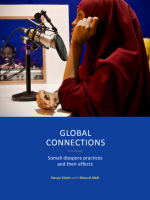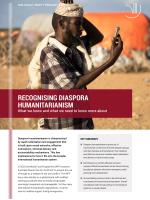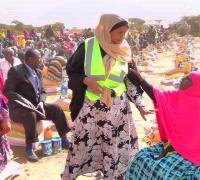Adaptation, professionalization and disruption

Somali diaspora engagement is a lifeline for Somalis living in the Horn of Africa but its future is uncertain. What will happen when the refugees who fled the civil war in the late 1980s and 1990s retire and no longer will be able to send remittances and engage to the same degree? Will the younger generations take over or withdraw? And if they do engage, will their transnational practices be different or follow the same trends we see now?
In this policy brief, we present three future scenarios of Somali diaspora engagement, as it may look like down the road, illustrating implications of current trends that range from adaption to disruption.
- Adaptation and continuation of current trends: Transnational practices will follow the same overall patterns seen today, guided by kinship and clan logics, while continuously adapting to changing local and global circumstances and technological development.
- Professionalization and dis-embeddedness: Diaspora youth maintains an overall sense of belonging to the Somali regions but will be less guided by place (and clan) affiliation than the older generation and more by professional interests and competencies.
- Securitization and deepening divides: Restrictive mobility, asylum and integration regimes, as well as continued securitization of remittance transfers and transnational mobility, will constrain and delimit Somali diaspora engagement in combination with a significant reduction in interest amongst younger generations. This may cause deepening divides between diaspora actors and local populations.
While the three scenarios may be, or seem, internally contradictory, they can nevertheless exist side-by-side. Such convergence may indeed be the most likely outcome in both the short and long term.
The policy brief is written by Nauja Kleist, DIIS; Ahmed M. Musa, Rako Research and Communication Centre, Hargeisa; and Jethro Norman, DIIS. It is published by Rift Valley Institute and contributes to the Diaspora Humanitarianism in Complex Crises (D-Hum) research project.
DIIS Experts





